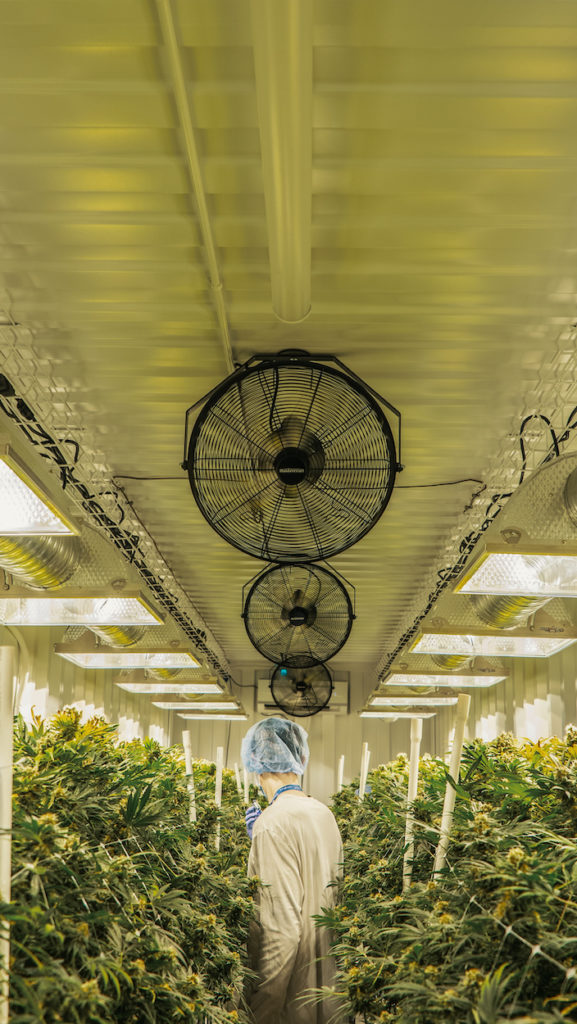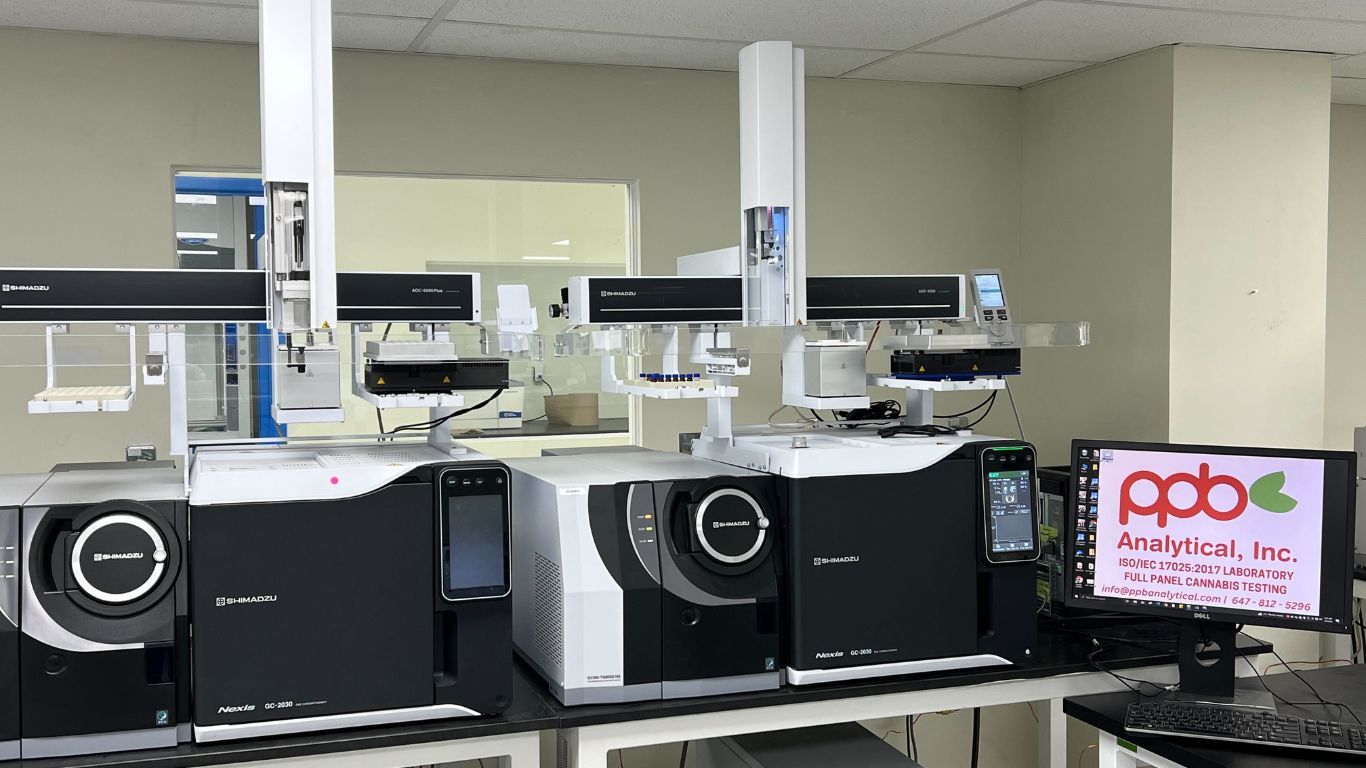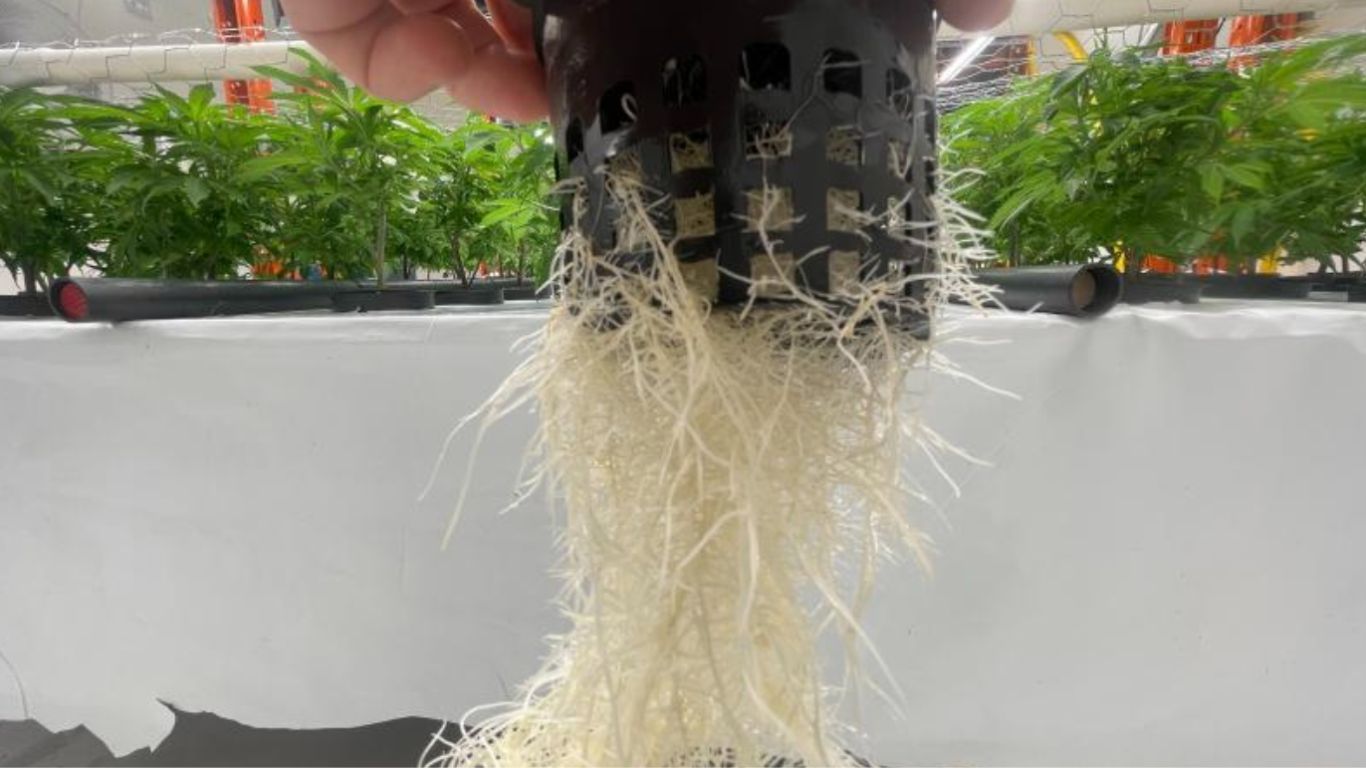
| COMPANY: | Delta 9 Bio-Tech Inc. |
| LICENCE TYPE: | Standard |
| APPROACH: | Indoor, Grow Pods |
| TIMELINE: | n/a |
| COST: | n/a |
| FACILITY: | Grow Pods |
Delta 9 Bio-Tech has been licensed to grow cannabis in Canada since late 2013, one of the first handful of Licensed Producers under the Marihuana for Medical Purposes Regulations (MMPR).
The company has seen a lot of changes in the industry since it was first licenced – from a small, fledgling group of producers, through the rise and fall of the cannabis stock bubble of the last few years – all while maintaining ownership and focus on their goal of growing cannabis.
Navigating changes
John Arbuthnot, the CEO and co-founder, started the company with his father in 2012 and has helped steer the company through those changes. Now he also wants to help new licence holders, especially micro cultivators, have an opportunity to learn from his experience.
In 2017, Delta 9 transformed their former cultivation platform from a more traditional indoor facility to utilize modular, retrofitted shipping container ‘grow pods’. In 2018 Delta 9 began hearing from and assisting other people in the industry who were interested in using the same approach, even helping to equip a college with the grow pod system as part of their own cannabis cultivation program.
While not unique to Delta 9, what Arbuthnot says he was able to offer these groups was not only access to the modular cultivation ‘pods’, but also assistance having had several years of experience cultivating in them, in accordance with Health Canada’s regulations.
Grow Pods
The 30 year old CEO says a light went off for him when he saw how much interest there was from others and he began to really develop the service as another part of Delta 9 Bio-Tech’s business. While they delivered 6 pods in 2018, by 2019 they had delivered 89 units to projects across Canada, including a growing number of micro cultivation applicants and one current licence holder. They also have partnerships with another dozen or so micro applicants in varying stages of construction and the application process.
From the perspective of Delta 9, the new side of their business made sense because it brought in additional revenue for the company through sales of the pods, as well as some added consulting fees. But it also helped them develop relationships with new cultivators who could then potentially sell their products through Delta 9’s sales license and network of retail stores.
Finding a market for your cannabis
While there’s a benefit for Delta 9, Arbuthnot says he sees just as much value for the companies who do work with him, not only by learning from their nearly seven years as a licenced cannabis producer, but in helping them find a market for the cannabis they grow.
We bring them out to our facility, we do a week of on-site training using our grow pods and SOPS, and they learn how to use our equipment and standards, ultimately to the point where they are issued a license.
“We saw that our real value proposition to help new micros was that we’re going to sell these grow pods as a standardized cultivation unit. We’re not going to pretend that they are the absolute industry-leaders in terms of yield, but we do produce high quality flower out of it. We’ll let them see exactly how much we produce, we’ll provide them with the pods, we’ll provide them with facility design, security design, crafting the Health Canada licence submission, working with them on security clearances, and providing SOPs. We bring them out to our facility, we do a week of on-site training using our grow pods and SOPS, and they learn from us how to use our equipment and standards, ultimately to the point where they are issued a license.”
An ecosystem for cannabis entrepreneurs
If they are interested, Delta 9 offers them a chance to sign on as a supplier of dried cannabis for Delta 9 to process and sell in the retail market. While this helps Delta 9 ensure they have access to new products and genetics, Arbuthnot says it can also assist the cultivator in all of the end processing of the product that is required to get dried flower to the consumer supply chain.
So they’ve got a licence, but where are they going to sell it?
“We see the headaches in entering all of these different provincial markets, with their different intricacies and requirements, each province with its own tax stamps, UPC requirements, and listing fees. All of that is only a further barrier to entry for these small craft growers to get their product to market. So they’ve got a licence, but where are they going to sell it?
“We saw that as our end game. We could create this ecosystem for cannabis entrepreneurs to start their business. We’ll provide the platform, and the expertise on those elements that are not necessarily a strong point for them.
“That’s how we add value and create value for their project. And, long term we will take their products and work with them on distribution, whether they produce products under the Delta 9 brand, or if they have a vision for their own brand.”
Collapse of the speculative cannabis bubble
…the winners ten to twenty years from now will be the people who produced good products that the consumer really wants.
Despite sometimes being seen as one of the ‘big LPs’, Arbuthnot says he feels the collapse of the speculative cannabis bubble is a good chance for the cannabis industry to reset, and sees micros and many of the new smaller companies as a key part of that.
“Honestly, I resent that the capital markets have seemingly picked the winners in the cannabis space. My view is that the real winners, the winners ten to twenty years from now, will be the people who produced good products that the consumer really wants. That they will have created a brand around these high quality products, not simply generating a lot of buzz around their share price to raise more capital to generate more buzz, to generate more capital, etc.”
Navigating the provincial distributor requirements
While getting to the point of being licenced is one piece of the puzzle, Arbuthnot says the real challenge for many micro cultivators and processors will be understanding how to deal with a provincial distributor and their many requirements.
“You’re dealing with, in most cases, massive provincial marketing boards and frankly, if you’re approaching them as a small micro cultivator who’s going to produce a few hundred kilos a year, I don’t know that they’re really going to have the interest in dealing with them. The batch sizes may be small enough that it simply doesn’t make sense for a micro cultivator/processor to be selling into those markets.
“It’s similar with all of the red tape you need to walk though to get products listed and into the market. For any batch of product that we sell to BC, for example, they have very particular requirements for packaging: bar codes, case pack approvals, we are required to have high resolution photos of every product we sell them – the list of requirements goes on and on, simply to get a product listed and available in a market.”
Realistic expectations for prices
Now we are starting to see quotes and offers around $2-$3 a gram for mid to high range THC products.
As others have noted, Arbuthnot also points out that cultivators need to be prepared for realistic expectations on a sale price for their crop. While some groups offering similar services may have been telling some micros they would get them $6-$8 a gram, he says those prices are quickly declining.
“It really depends. We are still seeing high THC flowers in bulk in certain circumstances being purchased opportunistically by the large LPs, because they can’t produce enough of it themselves, for around $5-$6 a gram. Those days are becoming, I think, very numbered. Now we are starting to see quotes and offers around $2-$3 a gram for mid to high range THC products.”
Focus on quality products
His own goal with his offer to the micros he’s currently working with, is to help them navigate these sorts of issues and help them succeed so that Delta 9 succeeds. He sees smaller companies who can focus on high quality products,and not try to navigate the more complex aspects of the supply chain, as a key way to help develop the Delta 9 brand as well.
“It’s not necessarily going to be the biggest operators with the biggest capacity. We’ve seen Canopy close 3 million square feet of greenhouse in the last few weeks. I think that’s very telling that that age of the industry where we all sprawled to get square footage in is over. It’s going to be about quality and creating brands for quality products.
It’s going to be about quality and creating brands for quality products.
“We’ve seen the rise and fall. But now we’re seeing all kinds of new business getting in and we haven’t heard of many of them yet. I bet you there are some who have been licensed in the last six months that you haven’t heard of but in five years you will know about them because their brands and their products will be selling very well in stores across the country.
“We’re trying to create that ecosystem to help these people be successful, and I think that’s been a missing piece in the industry. You see this in other industries where businesses do try to work together because they feel if you’re all creating value up and down the chain, and the customers are happy, and you’re creating good names for yourselves as good brands, then we’re all going to be successful.
The second inning & playing the long game
“Obviously we’ve seen the great euphoria and over exuberance of the capital markets in 2017 and 2018… and we can consider that we’re now rolling into the second inning in the cannabis space. The second inning and beyond here in Canada needs to focus more on that and less on the stock market. We’re going to get through this health crisis, whether it’s three weeks or six months or however long it takes, and we’ll build these relationships for the long term.”











